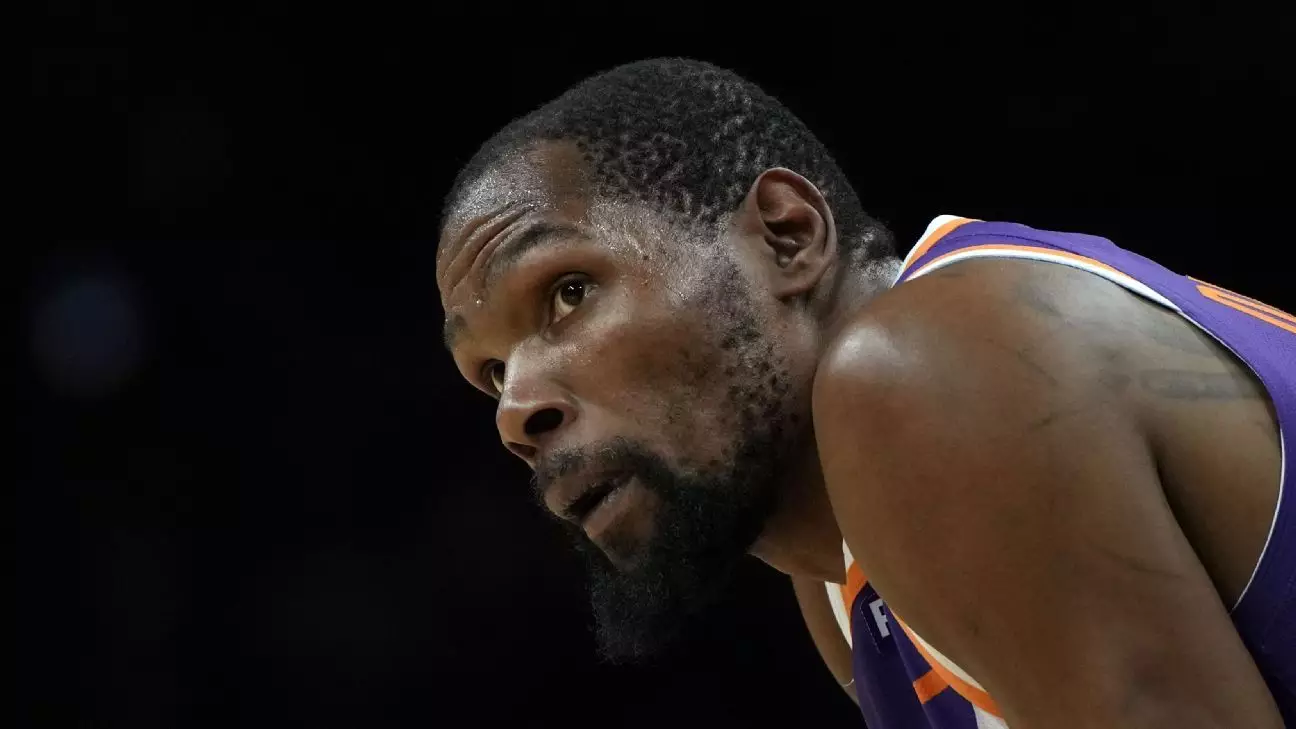The recent whirlwind of trades in the NBA underscores a disturbing trend: an obsession with control, spectacle, and reshuffling that often masks the league’s deeper issues—namely, its inability to maintain stability amid relentless transactional chaos. The orchestrated blockbuster involving seven teams, dozens of picks, and multiple star players is less about strategic team-building and more about a league increasingly driven by spectacle and power plays. From Kevin Durant’s sudden shift from Phoenix to Houston to the behind-the-scenes maneuvering involving draft picks and cash considerations, it becomes painfully clear that today’s NBA is less a sport and more a sprawling game of chess where dominant franchises and management wield disproportionate influence.
This colossal trade, which required the league’s moratorium lift and involved some of the brightest stars and most storied franchises, reveals the fragility of what should be a competitive balance. Instead of fostering genuine competition rooted in talent and strategy, what we see is a league manipulated by quiet power brokers working behind closed doors, reordering the league’s hierarchy to favor certain franchises and players, often at the expense of fans’ long-term interest.
Corporate League or Competitive Arena? The Degradation of Integrity
At its core, the NBA’s recent trading frenzy exposes a troubling shift away from merit-based competition toward an environment of transactional opportunism. The decision to move Durant amid whispers and negotiations, culminating in a seven-team mega-trade, underscores an alarming pivot: the league now resembles an intricate financial marketplace more than a sport where athletic skill and team chemistry determine success. This transactional frenzy raises significant questions about the league’s commitment to competitive integrity. Are we watching basketball, or a high-stakes game of control and power plays designed to boost short-term ratings and franchise valuations?
The league’s handling of such complex deals demonstrates a growing priority on spectacle over substance. Fans are continuously fed a narrative of stars seeking new homes and chasing titles, but beneath that lie intricately crafted negotiations designed to preserve or elevate those franchises’ dominance at the expense of league parity. Far from fostering a level playing field, these moves symbolize a consolidation of influence that can undermine the league’s credibility and long-term health.
The Impact on Fans and Local Communities
While insiders revel in these high-stakes transactions, the true casualties are often the fans and local communities who invest emotionally and financially in their teams. For supporters, the constant shuffling of stars and leadership erodes any sense of loyalty or stability. The Durant deal, in particular, illustrates the disconnection between league management’s interests and the communities that sustain the sport. Instead of cultivating genuine rivalries and fostering consistent team identities, the NBA’s obsession with blockbuster trades creates a fickle landscape where players seem to be interchangeable commodities rather than irreplaceable champions of their cities.
Furthermore, these mega-deals tend to prioritize star power over team cohesion and development—a shift that ultimately diminishes the league’s authentic competitive spirit. When franchise success is dictated more by the ability to orchestrate trades and navigate financial considerations than by coaching, tactical nuance, and youth development, the league risks losing its soul. Fans deserve stability and authenticity, not a game of fantasy where players are pawns in a corporate chess match.
The Underlying Illusion of Progress and Control
On the surface, these multi-team transactions appear to be strategic evolutions, signs of a dynamic and innovative league. Beneath that veneer, however, lies a fragile illusion of progress. The NBA’s decision to stretch itself thin trying to manage unprecedented deals reveals a league struggling against its own desire to control every movement, every player, every draft pick. This obsession with reordering the league’s landscape isn’t merely about improving competitiveness; it’s about maintaining a facade of power in a landscape that is fundamentally unstable.
Durant’s reflective message post-trade showcases another layer: a player’s acknowledgment of community, of shared experiences, possibly hinting at the inherent losses that come with such upheaval. Yet, the league’s management often disregards these deeper human elements, favoring headline-grabbing deals. Ultimately, the NBA’s recent moves are symptoms of an anxiety about relevance and dominance, reflecting an increasing prioritization of spectacle over sustainability.
—
In an era where entertainment and financial interests often dominate sports discourse, it’s crucial to critically recognize the underlying implications of the NBA’s transactional excess. These aren’t just business moves—they’re signals of a league increasingly captured by a corporate machinery that values control over competition and spectacle over authenticity. For fans, players, and communities alike, this tumultuous environment presents a sobering reality: the soul of basketball is being compromised in the relentless pursuit of power and profit.


Leave a Reply